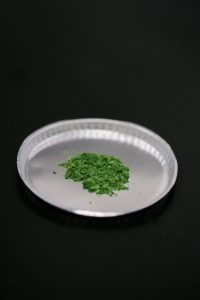WASHINGTON, DC (March 23, 2018) The Algae Biomass Organization (ABO), the trade association for the algae industry, today applauded the introduction of the Algae Agriculture Act of 2018 (H.R. 5373), a bill that would give algae cultivators and harvesters many of the same advantages as other traditional crops in United States agricultural policy. The bill was introduced by Congressman Scott Peters (CA-52) and sponsored by a diverse, bipartisan group of Congressmen: Andy Biggs (R-AZ-5), Derek Kilmer (D-WA-6) and Darin LaHood (R-IL-18).
“This legislation will help bring American agriculture into the future by welcoming the production of a new and incredibly useful crop that can sustainably provide food for millions of people, and even new chemicals, plastics, fuels and more.” said Matt Carr, executive director of the Algae Biomass Organization. “We are grateful for the dedication of the bill’s sponsors and their efforts to make the United States a leader in this new and exciting industry.”
The bill comes as algae is being increasingly recognized as a new agricultural crop with the potential to revolutionize food production, energy and how the nation approaches global sustainability challenges. A number of companies have recently announced new algae-based food ingredients for everything from energy drinks, nutritional supplements, cooking oil and even mayonnaise, to animal and aquaculture feeds that can simultaneously address growing crises in protein production, land use and water shortages.
“Algae offers a transformative increase in agricultural productivity that will rejuvenate rural economies and create massive numbers of high quality rural jobs in the U.S.,” said David Hazlebeck, Chief Executive Officer of Global Algae Innovations and Chair of ABO’s board of directors. “Algae technologies are developing rapidly around the world, and this kind of support will help the U.S become the leader in growing algae as a new, healthy and sustainable source of protein and other products.”
The bill is expected to support the development of algae as a crop as well as a tool for the entire agriculture industry that can use algae-based technologies and products to improve their own operations.
“Algae can become a natural pathway to improve soil health on farms, manage water resources, nutrient run-off, and utilize carbon in a way that earns revenue and reduces climate change impacts,” said Mark Allen, Vice President of Integrated Carbon Solutions at Accelergy Corporation and Vice Chair of ABO’s board of directors. “This bill is an important step toward making algae farming and other algae technologies an important part of American agriculture.”
The Algae Agriculture Act of 2018 establishes a number of provisions to promote the expansion of algae farming in communities across the United States:
New support for algae research and development in agriculture: The bill helps level the playing field for algae with respect to other crops by updating the U.S. Department of Agriculture’s National Institute of Food and Agriculture to include algae and its applications in agriculture, as well as the Foundation for Food and Agriculture, a nonprofit research institute that studies the economic and environmental resilience of our food supply. The bill also authorizes studies on algae cultivation’s potential for ecosystem support, nutrient management and soil heath, rural manufacturing and energy, and other ways to deploy algae as an agricultural solution.
Support for carbon utilization projects in rural communities: Under the new legislation, rural electric cooperatives would have explicit eligibility for Carbon Capture and Use (CUU) projects that take advantage of algae’s unique ability to generate revenue while also absorbing massive quantities of carbon dioxide. This support comes on the heels of language in the recent budget agreement that provides a new $35 per ton tax incentive for carbon captured and recycled from power plants or industrial facilities using algae or other biologically-based systems.
Crop disaster assistance for algae cultivation: Algae farmers would also be eligible for a USDA benefit many crops have had for decades: financial assistance when low yields, loss of inventory, or prevented planting occur due to natural disasters.
About the Algae Biomass Organization
The Algae Biomass Organization (ABO) is a 501 c(6) non-profit whose mission is to promote the development of viable commercial markets for renewable and sustainable commodities derived from algae. Its membership is comprised of people, companies, and organizations across the value chain. More information about ABO, including its leadership, membership, costs, benefits, and members and their affiliations, is available at the website: www.algaebiomass.org.


 The Algae Foundation has recently announced the availability of the Introduction to Algae MOOC. The Massive Open Online Course offered through Coursera was produced at the University of San Diego and taught by Drs. Steve Mayfield of UCSD and Ira “Ike” Levine, University of Southern Maine.
The Algae Foundation has recently announced the availability of the Introduction to Algae MOOC. The Massive Open Online Course offered through Coursera was produced at the University of San Diego and taught by Drs. Steve Mayfield of UCSD and Ira “Ike” Levine, University of Southern Maine.